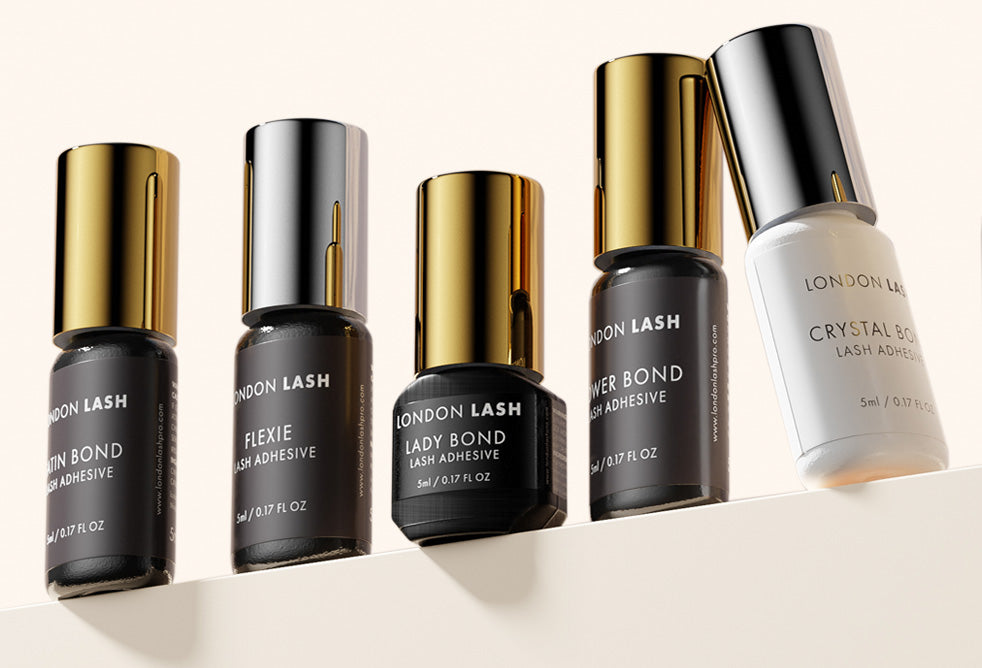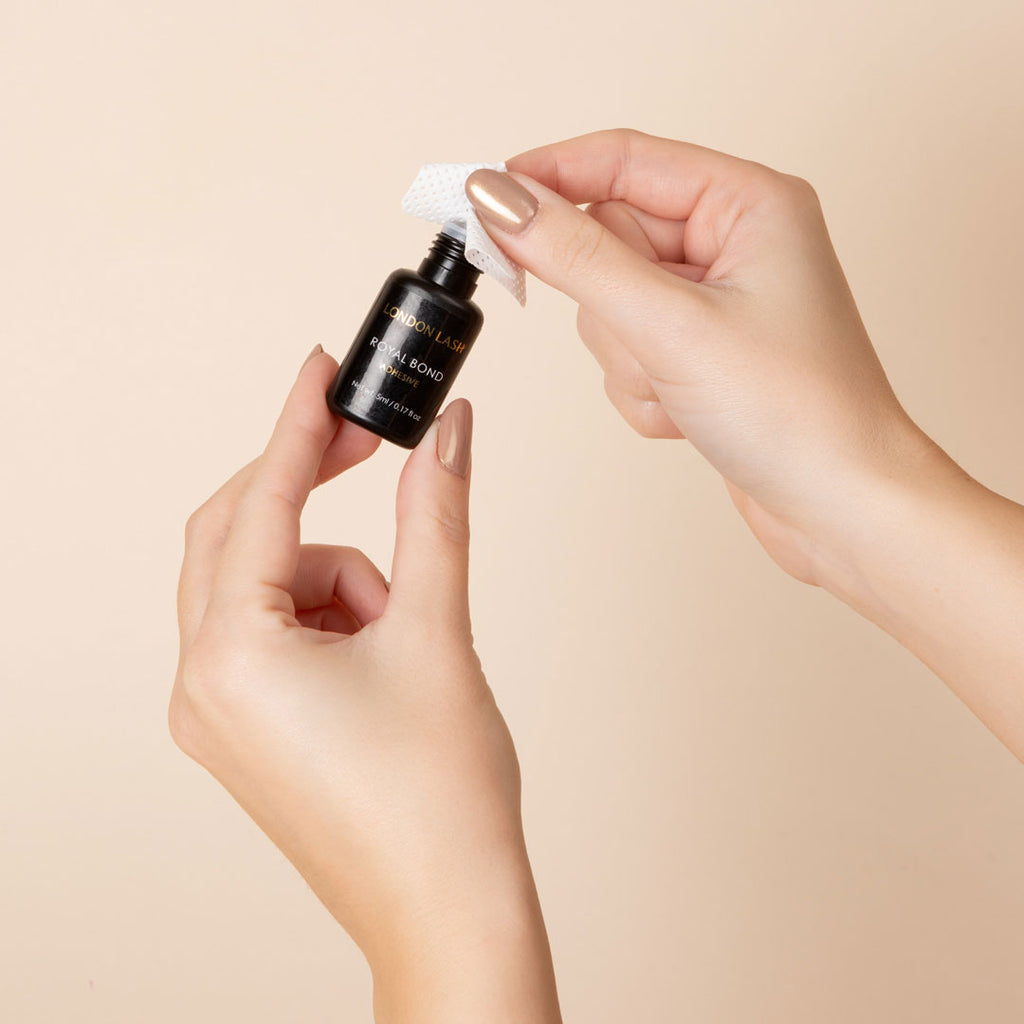FREE STANDARD SHIPPING FOR ORDERS OVER $170!
FREE STANDARD SHIPPING FOR ORDERS OVER $170!
New In
Glues & Liquids
Ebooks

The TRUTH About Sensitive Lash Extension Glue...
December 28, 2022 2 min read
Why Does Lash Extensions Glue Burn? Here's What You Need to Know About Sensitive Lash Glues
Having been part of the Customer Service team at London Lash for a while now, I’m asked a lot about sensitive glue for eyelash extensions. Here’s everything you need to know about sensitive lash extensions glue…
What Makes a Lash Glue "Sensitive"?
Simply put, it depends on how much cyanoacrylate is present; the less cyanoacrylate present, the more 'sensitive' it is thought to be. But what does this imply? As a result, your client is actually exposed to the fumes for a longer period of time and your workday is extended because you must hold the extensions in place for a longer period of time while the glue dries on the lashes. Because it remains moist for a longer period of time, it also raises the danger of stickies.
Can Allergic Reactions be Prevented by Sensitive Eyelash Glue?
No. There isn't much you can do to change the fact that a client is allergic to the cyanoacrylate in lash glue, while it can delay the development of an allergic reaction or lessen its severity in the first instance or two. As a result of the fact that allergic reactions to lash glue are cumulative, or build up over time as the body repeatedly tries to tell you to stop, reactions will either 1. Become more severe over time or 2. More frequently affect clients who have been with you for a while.

Does Sensitive Eyes Eyelash Glue Prevent Chemical Burn?
No, it still contains the same ingredients and still emits fumes. As I mentioned above, this means that because the glue takes longer to dry, you and your client are exposed to the fumes for a longer period of time. As a result, if the client's eyes are open during the procedure, they are just as likely if not more to a chemical burn.
So, They Don't Exist?
For the reasons listed above - I can't speak for other lash brands - but we've never marketed any adhesive as "sensitive" because doing so gives the impression that your client's allergy would be cured when in reality it may be temporarily reduced only for it to return worse in the future. There are some brands of glue that will take a very long time to cure due to the reduced cyanoacrylate, allowing it to be marketed as sensitive. Of course, you can try them, and they might even be helpful, but you should still proceed with caution.

Are There Any Lash Extensions Glues Without Cyanoacrylate?
There are sometimes cyanoacrylate-free glues in development, however they appear on the market very infrequently and erratically. For the record, we did test a couple of them a few years back, but the results were disappointing and the retention wasn't nearly as good as we had hoped. Since then, finding them from developers and manufacturers alike has grown more challenging, but you can be sure that if they ever become accessible and are of good quality, we'll be the first to add them to our collection!
If you'd like more information about how to spot and prevent chemical burns and allergic reactions, check out this blog post.
Subscribe
Sign up to get the latest on sales, new releases and more …





























